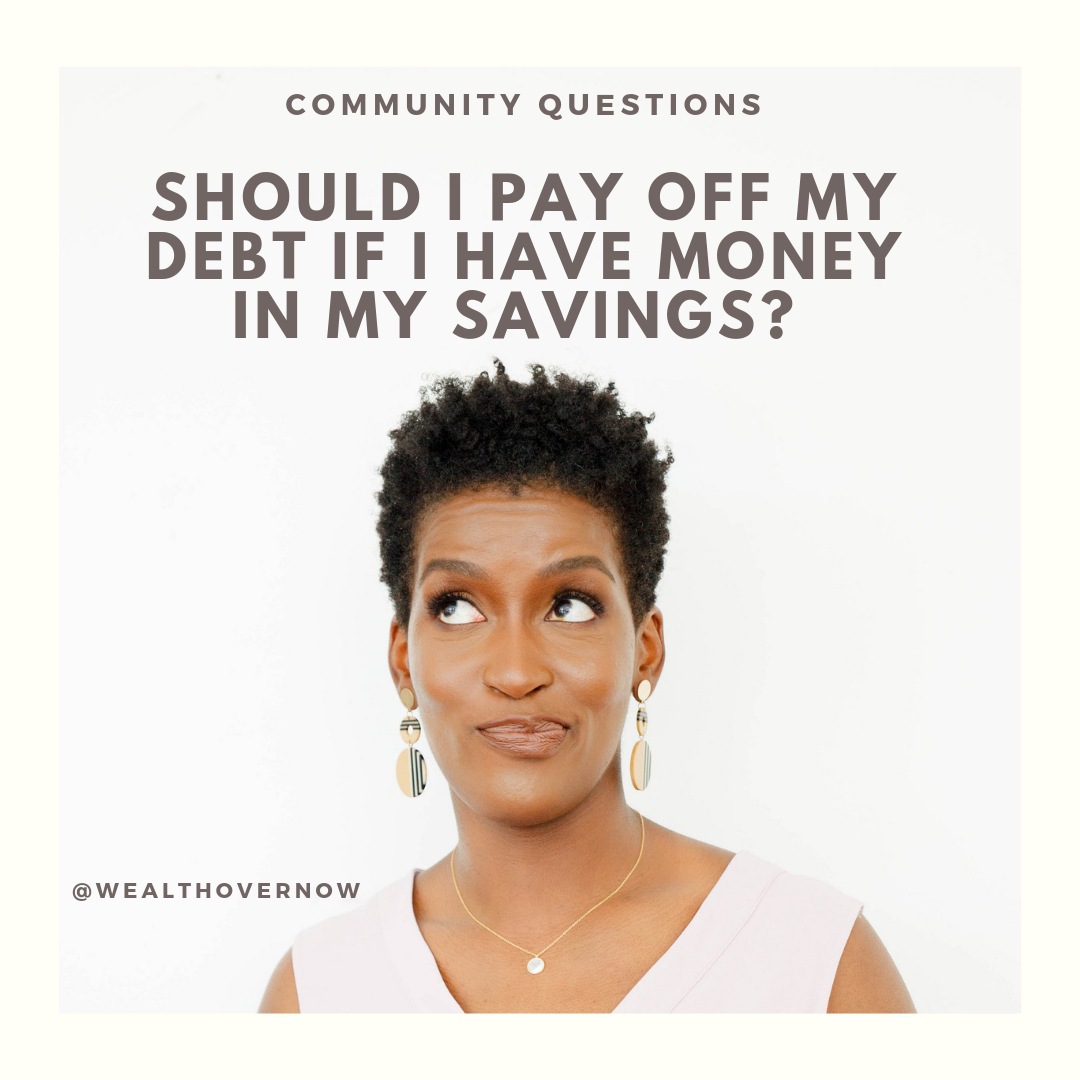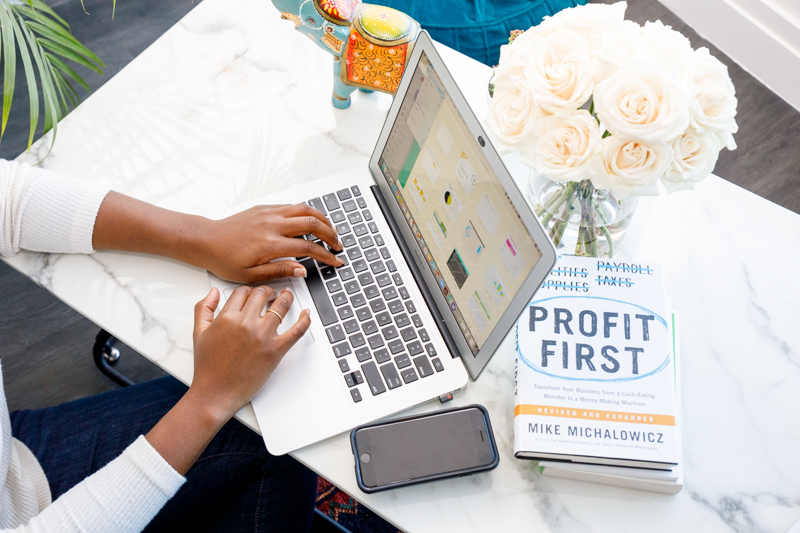
The question my community is always asking is “Should I pay off my debt if I have money in my bank account?”
Someone like Dave Ramsey would say “keep $1000, and put the rest towards your debt. Then proceed to baby step 2: pay off all non-mortgage debt using the debt snowball”.
My answer is always “it depends because first you need to know more about your relationship with money.”
I personally don’t believe there is a one-size-fits-all approach to debt payoff because we are all individuals, and our money stories and histories vary. So before I can answer what to do with your debt, I want to know the root cause of that debt. I want to know why you’re in debt in the first place.
Often times, if you find yourself in debt, you’re in a cycle. You’ve used credit cards or taken out a loan to pay for something you couldn’t afford and still can’t afford and now you’re paying off minimum payments and still using money you don’t have to purchase things but hoping that one day you’ll be out of debt.
This cycle is what prompts me to find out more about your spending habits, your budget, and your cash on hand for emergencies. Here’s why you need to start with your relationship with money to inform your answer.
1. Your Spending Habits
Tracking your money is important for debt management because it builds self-awareness. When you’re tracking your spending habits, take note of how you pay. Are you using cash, debit, or your credit card? (If you want to track your daily money moves, you can do it easily using one of my favorite client tools, which you can grab here.) If you discover that you’re consistently using a credit card to pay for your expenses and not paying the balance off in full every month using your savings to pay off your debt may only be a temporary solution because you haven’t addressed the root of the problem – your spending habits! I would advise you to continue tracking your spending while you focus on only using cash for purchases. This awareness will benefit you in the long run by not increasing your debt and help you maximize your savings and minimize your spending.
2. Your Budget
Do you have a budget? And let’s be clear, I’m not talking about a budget that you made back in January or even at the start of the month but haven’t looked at it since you made it! I’m referring to a budget that you regularly consult and revisit before you say ‘yes’ or ‘no’ to a purchase. A budget where you know how much money you still have left to spend on groceries, gas, and brunch – one that is driven by more than the balance that you see in your bank account. Your budget is a great tool to help guide your spending habits to help you either stay or get out of debt. So, if you don’t have a budget that you stick to, I would not recommend that you use your savings to pay off your debt. If you pay off your debt but don’t have a budget that you actually use to monitor your spending you may end up back in the same situation.
3. Your Emergency Fund
In 2019, 4 in 10 Americans could not afford a $400 emergency expense without going into debt or borrowing money from a close friend or family member. When you’re considering depleting your savings account to pay off your debt, I would also push you to ask yourself (1) would this money better serve me as a buffer in the event of an emergency? (2) how quickly can I replenish my savings if I use it to pay down/off my debt? By thinking about your emergency preparedness, you are creating a safety net for yourself so you do not end up right back in debt if/when an emergency comes.
So, should you pay off your debt if you have money in your bank account?
My guess is that you might be battling with this decision for yourself. I invite you to choose at least one of these steps to act on this week so that you can make a decision about how to handle your debt.
And if you feel like you’ve tried it all before but you still feel stuck I’m always here to help. I would love to support you in creating a plan to help you maximize your savings and minimize your spending so that you can pay off your debt and stress less about money.
XOXO,
Keina


